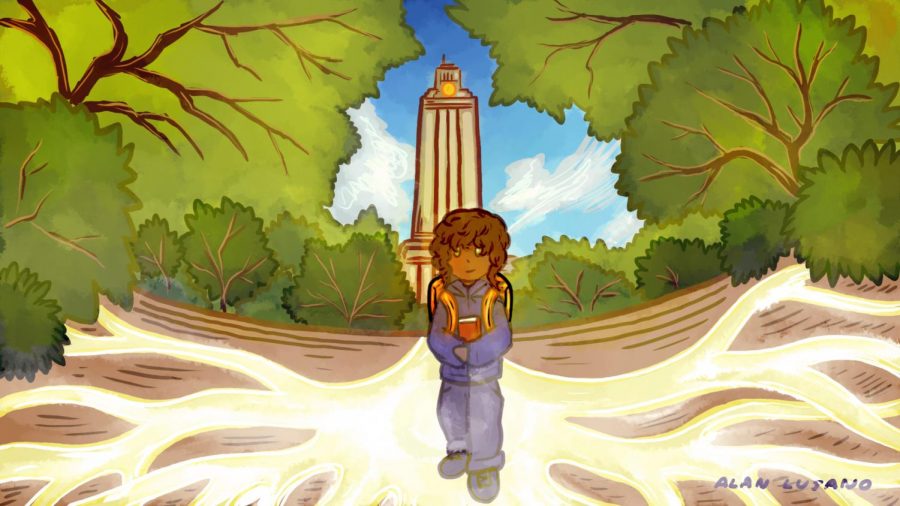UT students share their experiences taking time off from school
September 30, 2021
As he washed dishes at Chipotle following a Thanksgiving week hockey practice in New York, Ian Denning’s mind raced with the possibilities of other career paths he could pursue.
“I was hating life at that point,” the sociology and French sophomore said. “I was like, ‘Dude, a year from today, if I’m still working at Chipotle, that is not okay.’”
Denning played ice hockey semi-professionally for two years after graduating from high school. After a lot of thought, he decided to leave the sport behind, take classes at a community college and enlist in the U.S. Army as a combat medic. Since his break from his undergraduate studies, Denning said he gained valuable insights such as the power of action versus inaction.
“I didn’t know where my life was going to go, but I was at least doing something with it, even if I hated it,” Denning said. “I wasn’t waiting for inspiration to come to me. … The whole time I was brainstorming, ‘What’s it like doing this or that,’ then (making) a mental note to Google it when I’d get home.”
Aerospace engineering sophomore Mohammad Imamuddin went through a period of self-discovery to grow and recover mentally after his first year at UT.
“When I was (a freshman) at UT, I was immature in the sense that I was just really negative about the state of the world,” Imamuddin said. “Nothing had any meaning. Why would I study to be an engineer or (get) a desk job that I’m going to hate?”
Imamuddin spent his break pursuing his passions. He went to art school to study photography, then earned his associate’s degree in sociology. He also worked for an art nonprofit and helped his dad with his business.
“I got really involved at home, and that was a big change,” Imamuddin said. “I started finding joy in small things like painting walls, gardening or cooking, (and this change in mentality) made me want to do more with my life.”
Before anthropology junior Bianca Talabis left UT in 2017, she studied chemistry. After doing a mentorship program at an Austin-based graphic design company, she returned two years later with the confidence to pursue arts and humanities over science.
Talabis said she’s now completely financially independent, paying for her own education. She also became increasingly involved on campus, frequently reaching out to her professors, advisors and fellow students.
“It’s more special to me because this is not only what I want to do but I literally put in my blood, sweat and tears into school this time around, so I’m just more motivated to finish it off right,” Talabis said.
Denning advises students to not fall deep into the competitive, fast-paced college culture and reassures them taking a break is nothing to be ashamed of. He said in retrospect, his past years proved to be a healing and necessary time for development.
“You learn so much about yourself, your place in the world and how you see yourself fitting in,” Denning said.



